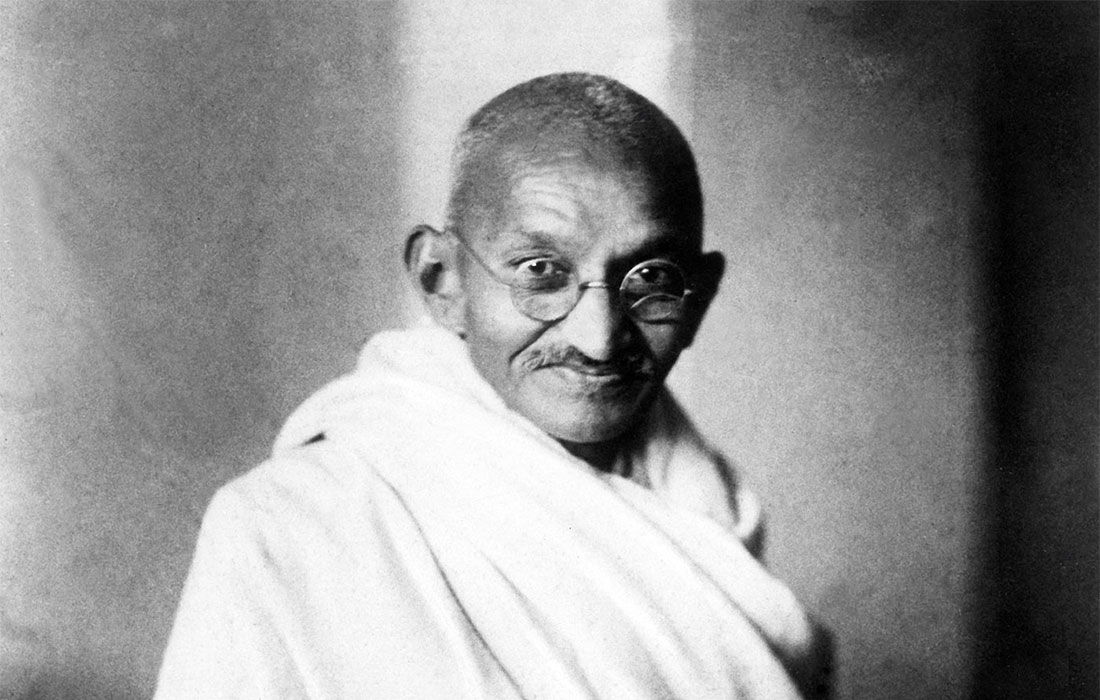
MAHATMA GANDHI (1869 – 1948)
Mohandas Karamchand Gandhi was admired the world over for his nonviolent philosophy of passive resistance. This later earned him the name “Mahatma,” meaning Great Soul. In 1894 he began his activism as an Indian immigrant to South Africa. After World War 1, he became the leading figure in India’s struggle for independence.
Gandhi was known for his simple lifestyle and devout Hindu faith. He often dressed only in a loincloth and shawl. He was imprisoned several times in his pursuit of non-cooperation and went on a number of hunger strikes to protest injustices.
GANDHI’S EARLY LIFE
Gandhi was born to a Hindu family on October 2, 1869, in the city of Porbandar, India. His father was a lawyer, an important government official belonging to the merchant caste. As a child, Gandhi was shy, returning home as soon as school ended to avoid talking to anyone. At the young age of thirteen, Gandhi was married to Kasturba, who was the same age as himself. She would bear him four sons.
When Gandhi was eighteen, he went to London to study law. During his three years there, he became deeply interested in vegetarianism and the study of philosophy and different religions. He was a serious student and eventually he passed the bar exam, qualifying him as a barrister.
For the next two years he attempted to practice law in India. But his hopes for a successful legal career almost crumbled when he lost his first case. He lacked knowledge of Indian law and self-confidence at trial. He became so nervous that he couldn’t speak properly and fled the courthouse in a panic. Years later, in his autobiography, he explained: “My head was reeling and I felt as though the whole court was doing likewise. I could think of no questions to ask.”[1]
This fear of public speaking continued for much of Gandhi’s life. And yet he was a fearless campaigner for the rights and dignity of all people.
I wonder how many of us have anxieties and fears, believing a meaningful life is beyond us. How many of us are tempted to give up and hide? So much more comfortable it is to stay at home doing safe things! Yes it would be comfortable. But too much comfort becomes boring. If you believe in something and have a passion for it, it’s not beyond you. Gandhi tells us to think this way:
“If I have the belief that I can do it, I shall surely acquire the capacity to do it even if I may not have it at the beginning.”
Gandhi saw many situations around him that were unjust. He had a passion to change them. Despite his speaking handicap, he found the gifts he did have, and used them. His difficulties speaking made him an excellent listener. He was calm, humble, and compassionate. He learned to say more with less words.
In 1893 Gandhi accepted work from an Indian firm in the Transvaal, South Africa. Although the contract was for a year, he ended up staying for twenty-one years. He served as legal counsel to a merchant, Dada Abdulla.
[1] Gandhi, M. K. (1927) An Autobiography: The Story of My Experiments with Truth, Navjivan Publishing House, , Ahmedabad,
This has been Part 27 of the series A Life Worth Living. Read Part 28 – South Africa and Discrimination
Leave a Reply